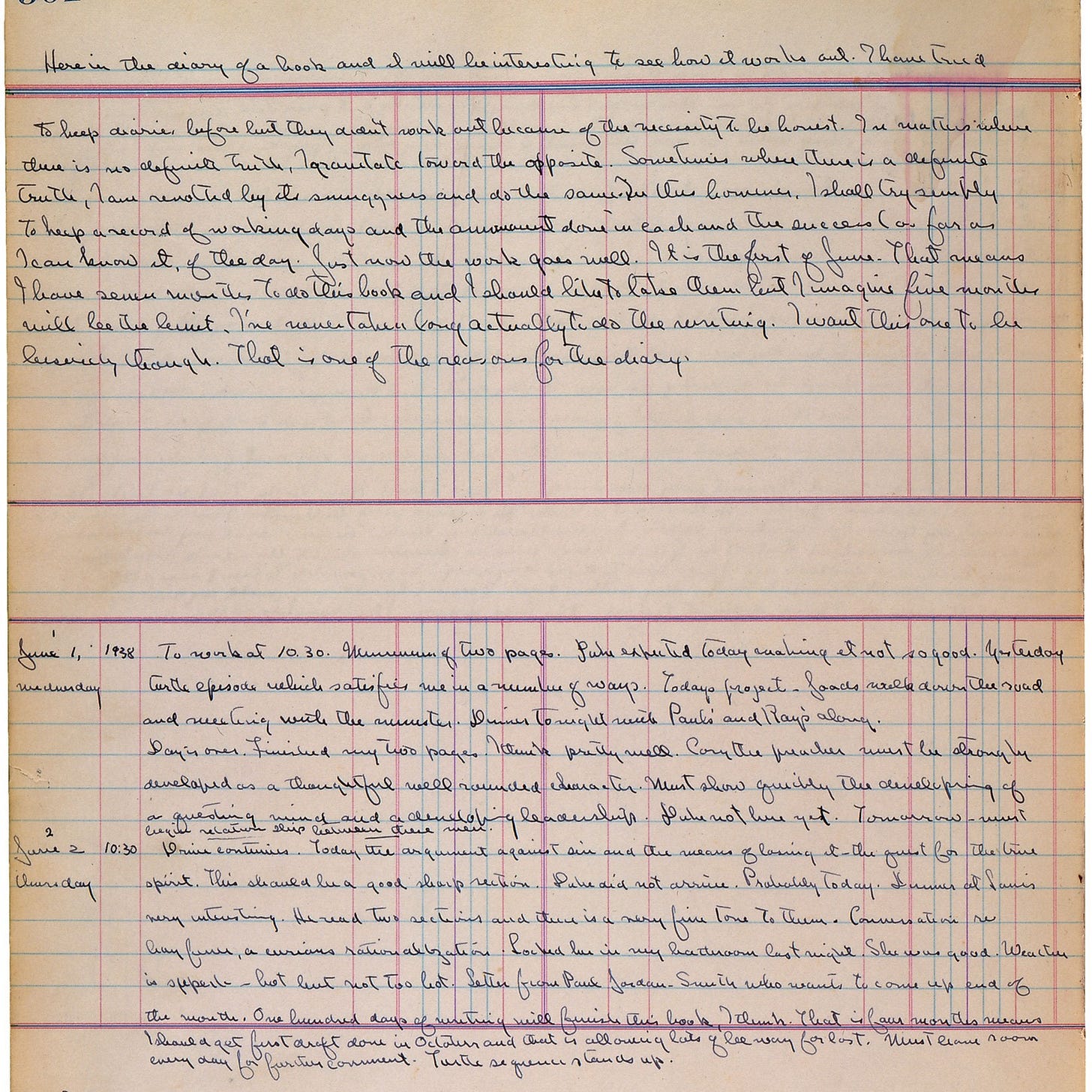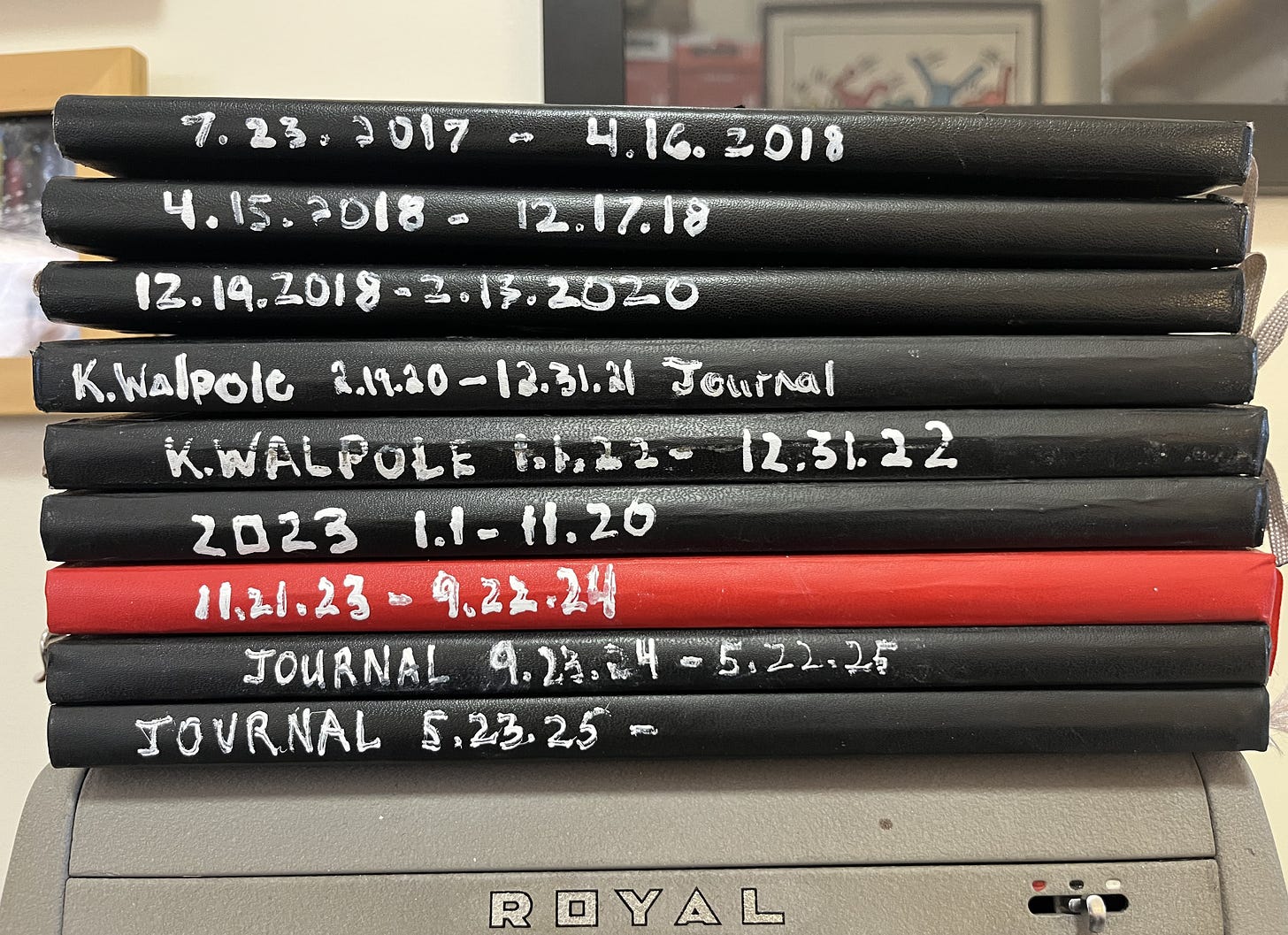5 Tips For Keeping A Daily Journal
Kickstart your journaling practice with these daily writing tips.
Hi Friends -
Maybe one of your New Year’s resolutions is to start journaling.
Journaling is a way to record your thoughts and pay attention to the smaller details as we go about our lives.
But the benefits come from daily journaling.
I have to practice a new habit everyday until it becomes a part of my daily routine. Small steps day after day is the only way I can make any progress. The same goes for journaling.
I can honestly say that the simple practice of journaling every day has greatly improved my life and writing.
I hold myself accountable. I know what I did yesterday and what I must do today. My journal is a safe space where I can write however and whatever I want without judgment.

But I had to practice journaling, just like anything else.
At first, sitting down and finding the time to write wasn’t easy. Now, if I miss a day my mind is scattered.
I journal at the same time every morning with pen and paper. I write whatever comes to mind about the previous day’s events, my thoughts, comments and plans for the upcoming day in a stream of consciousness. I just write, I don’t really think about it.
Journaling is the bedrock of my writing practice and the cornerstone of how I understand myself and the world around me.
Journaling focuses and orders my thoughts. I have a daily record of who I am at that moment in time and who I want to be. Starting with the simple act of sitting down with pen and paper every morning, I began writing fiction, blogging, and this newsletter.
Five tips for keeping a daily journal:
Just write.
When you’re starting out the best thing to do is just write! Journaling can be whatever you want it to be: a written or typed entry, a voice memo or vlog, on a scrap of paper or in a new notebook. However, whenever, wherever you can, it doesn’t matter.
Do it everyday.
To get into the habit of journaling daily write everyday at the same time for a set period of time. No distractions. Set a timer. Make it part of your daily routine.
Record everything (or nothing).
There’s no one method to journaling. Get all your thoughts and emotions out on the page. Or just write about whatever pops into your head. When you look back, a pattern will emerge. In the beginning my journaling was mostly about the day’s events - this happened, that happened - but later became a space for self-reflection.
To read or not to read.
Sometimes I read past entries to get a sense of where my head was at on any particular day or month. But mostly I don’t read my entries. It’s up to you.
Keep it up.
Write everyday. Find what method works best for you. Stick with it and I’m sure you’ll see results.
But don’t just take my word for it! Many writers kept a journal, diary or notebook:
Joan Didion on keeping a notebook:
“So the point of my keeping a notebook has never been, nor is it now, to have an accurate factual record of what I have been doing or thinking…How it felt to me: that is getting closer to the truth about a notebook.”
Austin Kleon writes that his diaries are a snapshot of himself:
“I find that my diaries often remind me not who I used to be, but who I am and who I still am.”
Julia Cameron guides creatives to get those messy pages out first:
“Once we get those muddy, maddening, confusing thoughts [nebulous worries, jitters, and preoccupations] on the page, we face our day with clearer eyes.”
Benjamin Franklin kept a diary of his progress toward ‘moral perfection’:
“I made a little book in which I allotted a page for each of the virtues.”
John Steinbeck kept a journal while writing novels:
“I shall try simply to keep a record of working days and the amount done in each and the success (as far as I can know it) of the day. Just now the work goes well.”

If you want to start journaling, now is the time! Set aside time everyday even if its 5 minutes. Set a timer and write. Treat it as sacred; no distractions. Keep doing it everyday. Find what method works best for you.
Remember: journaling doesn’t need to sound or look a certain way. It can be lists, notes, brainstorming, goal planning and a whole lot more.
All you have to do is write! Keep that up and you’ll cultivate your journaling practice into your daily routine.
Here’s some other forms of journaling you might find helpful:
Do you journal, keep a diary, notebook or commonplace book?
Until next time,
Keith
Thanks for reading Circles In Space. Subscribe to get Five Bullets every Friday.
Support Circles In Space. Your generosity keeps the newsletter up and running.





These are great tips. I stopped for a while but find myself needing to make time to get started again. In the past it was mostly a page or two of just stream of consciousness. I think now it may take the form of just bullets. What I'm noticing now is that it really helped with my memory! I forget things more easily now that I don't record them in some way.
Great tips! I like Steinbeck's first line in the journal entry pictured above. 'Here is a diary of a book and it will be interesting to see how it turns out.' Whether it be a diary of a book, or a diary of personal thoughts or goals, it's great to be able to look back and see the progression of one's life.